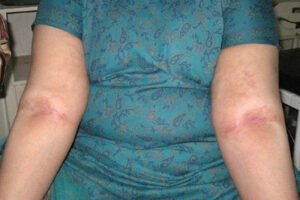Paper Receipts From Major Retailers May Expose You to Toxic Chemicals
The Hidden Dangers of Paper Receipts: Why They May Expose You to Harmful Chemicals
Understanding the Risks of Paper Receipts from Major Retailers
The next time you’re at the checkout counter and offered a paper receipt, you may want to decline—not just for the sake of the environment but also for your health. Paper receipts from major retailers in the United States are often coated with a toxic chemical known as bisphenol S (BPS), a substance that could pose serious health risks.
What Is BPS, and Why Is It Dangerous to Your Health?
BPS is often used as a safer alternative to bisphenol A (BPA), a harmful chemical that has been banned in many parts of the world. Despite its intended safety, research suggests that BPS may still present similar health concerns. This chemical is used in a variety of everyday products such as toys, clothing, and food packaging. However, it’s particularly concerning when it comes to paper receipts, where prolonged exposure—just from touching the receipt for a few seconds—can allow the skin to absorb BPS.
One of the key issues with bisphenols is their potential to disrupt the endocrine system, particularly hormones. These endocrine-disrupting chemicals have been linked to an increased risk of chronic health conditions and certain cancers, raising serious concerns about regular exposure.
Why Is BPS Used in Paper Receipts?
BPS is used in thermal paper to help create the ink on receipts. While there are “phenol-free” alternatives available, they often don’t work as well and may require additional equipment. The Center for Environmental Health (CEH) has reported that the amount of BPS absorbed by the skin from handling a receipt exceeds the safety limits set by California’s Proposition 65, which is designed to protect consumers from exposure to toxic chemicals. Despite this, many U.S. companies still use BPS in their receipts, and the U.S. government has yet to implement any nationwide bans on this chemical.
What Is Being Done to Regulate BPS?
Some states, such as Washington, are taking steps to reduce exposure to BPS by banning thermal paper that contains bisphenol by 2026. However, while countries like Switzerland have already banned the use of BPS in paper receipts, the U.S. has yet to enact any widespread national bans.
How Can You Minimize Your Exposure to BPS?
Avoiding BPS entirely can be challenging, as it is found in many products you come into contact with daily. While touching a single paper receipt may not cause significant harm, ongoing exposure can increase your risk of health issues over time. Here are a few practical steps to reduce your exposure:
-
Opt for digital receipts when available, sent through email or text, to avoid handling paper altogether.
-
If you must take a paper receipt, store it immediately in your wallet to minimize direct contact with your skin.
Key Takeaways
Paper receipts may contain BPS, a toxic chemical linked to hormone disruption and other health risks. While it’s difficult to completely avoid exposure, you can reduce your risks by choosing digital receipts whenever possible or quickly storing paper receipts out of direct contact with your skin.
Expert Tips for Reducing Chemical Exposure
To reduce your exposure to harmful chemicals, such as BPS, follow these expert tips:
-
Prioritize digital receipts over paper ones.
-
Keep paper receipts in your wallet or bag to limit direct contact with your skin.
-
Stay informed about local legislation regarding chemical exposure and be proactive in making safer choices.
Join the Movement Toward Healthier Choices
If you’re concerned about your exposure to BPS and other harmful chemicals, consider subscribing to our newsletter for more tips on how to make healthier, eco-friendly choices in everyday life




